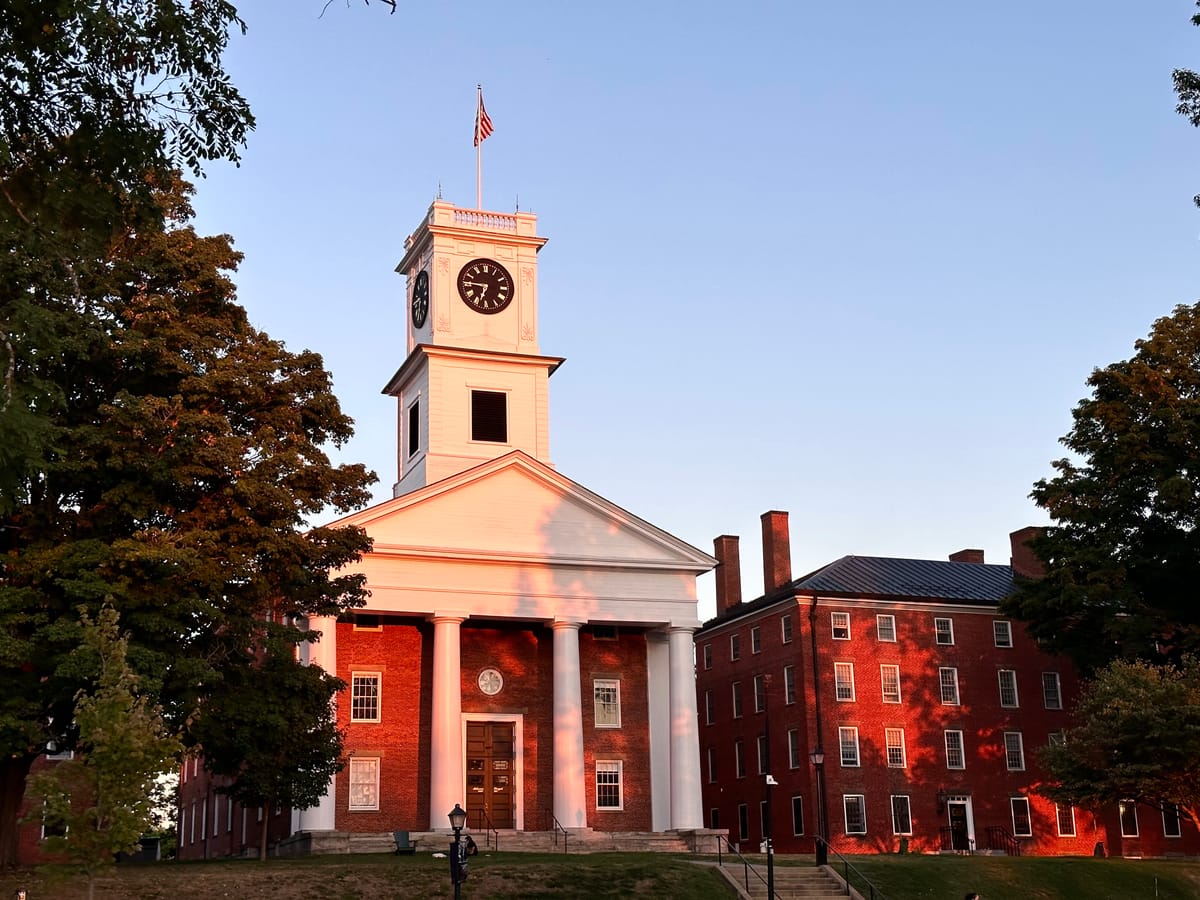Faculty Adopt Historic Democracy Resolution
On Oct. 24, the college faculty voted in support of adopting a resolution that speaks out in defense of democracy and individual liberties. The resolution affirms the belief that ongoing threats to democracy pose a significant risk to the values and educational mission of the college.

At a faculty meeting on Oct. 24, Amherst faculty voted 102-26 in support of adopting a historic resolution, speaking out in defense of democracy and individual liberties beyond the college.
“In light of escalating threats to democracy and the rights of citizens and non-citizens in the United States, the faculty of Amherst College affirms its belief that those threats endanger our educational mission. We join with others who are also speaking out, defending freedom, democracy, and the rights of all, regardless of their political allegiances, religious, gender, and racial identities, or immigration status,” the resolution reads.
The resolution is the first of its kind among American higher education institutions, according to William Nelson Cromwell Professor of Jurisprudence and Political Science Austin Sarat, who led the effort.
The resolution was cosponsored by 28 other faculty members of the college, and further endorsed by the Executive Committee of the Amherst Chapter of the American Association of University Professors.
The intention behind the resolution, which has been in the works since last spring, was to address ongoing threats to democracy beyond those specific to higher education, such as academic freedom and independence of universities.
“What I wanted was for the Amherst faculty [to] not simply talk about what was good for the Amherst faculty. The resolution speaks about things beyond the particular professional interest and benefits of [faculty at the college],” Sarat said.
Sarat emphasized that this meant the resolution had to intentionally differ in focus from statements made by President Michael Elliott amid President Donald Trump’s administrative attacks on academic freedom in higher education.
“The president of the college is the only one who can speak officially for the college, but he’s not the only one who can speak about the college and its values,” Sarat said.
Despite 26 votes in opposition to the resolution’s adoption, no faculty member spoke against the resolution at the meeting. There were, however, reservations about the wording and implications of the resolution.
Professor of Physics and Program Chair of Biochemistry and Biophysics Ashley Carter voiced concerns at the meeting that the resolution protected certain identity categories, but did not include sexual orientation, disability, and ethnicity.
Professor of English and Black Studies Cheikh Tham also expressed concern that certain faculty members might be at risk by issuing this kind of resolution within the current political climate.
“I think the risk is worth taking … but if [the Trump administration] ever come[s] after us, who here is more protected than others?” he said.
For Sarat, the intended audience of the resolution includes students, alumni, the Board of Trustees, and other colleges and universities. While he hopes other university faculties will adopt similar resolutions, Sarat emphasized that this was not the main intention of the resolution, and it would still be valuable even if other universities follow suit.
“A statement of values is not necessarily an instrument to produce something else,” he said.
Regardless of its impact, the resolution represents an attempt to be on the right side of history to many faculty members.
“When Amherst’s part in this period [of history] is written, somebody’s going to be able to read that and say this little liberal arts college in western Massachusetts did not sit idly by,” Sarat said.





Comments ()